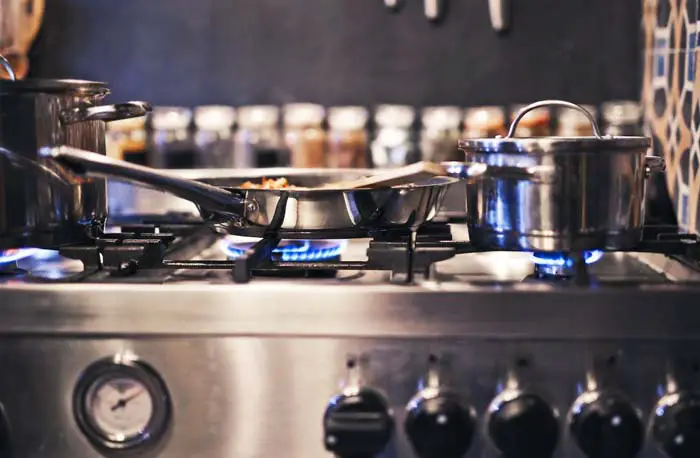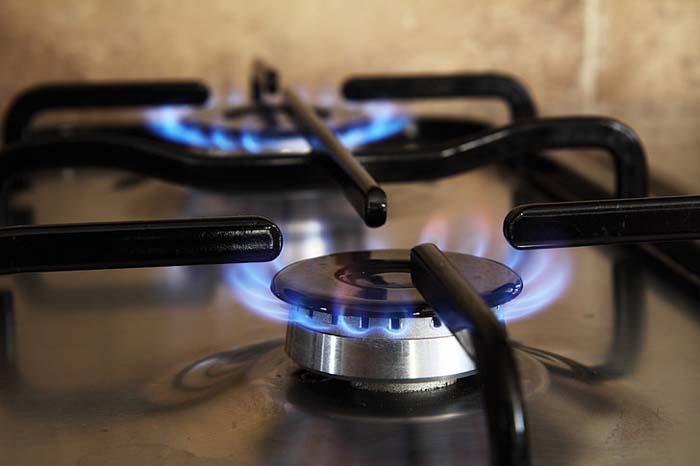Most homes today use liquid petroleum gas (LPG) cylinders as their main source of cooking fuel. The importance of raising awareness of safety measures is becoming increasingly pressing. The reason is that the number of households continues to rise on a daily basis. LPG is stored in gas cylinders despite its severe flammability.
Because of the volatile nature of this gas and the confined space in which it is stored, proper cylinder handling is important for avoiding an accident.
What can you do to make sure that gas cylinder accidents never happen?
Always use caution when cooking
When using gas to cook, the kitchen must have adequate ventilation. Don’t get too close to the fire with panhandles, plastics, or anything else that could catch fire. Keep a watchful eye on the food at all times since an increase in flames or an overflowing pan could cause the burner to go out.
Check the pot’s stability in the cooker on a regular basis. This is only one of many gas safety guidelines for the kitchen that you should follow.

The cylinder’s positioning is important
One of the most common causes of gas-related accidents and fatalities is improper positioning.
Because of this, the positioning requires your utmost attention. Always keep your gas cylinder on a secure and balanced surface. Additionally, place it vertically so that the bottom of the cooking gas touches the balanced surface. Also, the regulator side of the container is facing up for maximum safety when using cooking gas.
However, never rotate or place your cooking gas horizontally for more pressure; doing so can cause severe damage. If you want things to go smoothly, keep the cylinder’s valve and regulator within easy reach.
Keep the cooker out of kids’ reach
As is standard practice, most household appliances, including cooking gas, should stay out of children’s reach. This is because kids can be thoughtless at times, and gas can be hazardous if mishandled.
As a result, if you are a parent who worries about your child’s well-being and the security of your family, it is important to prevent your teenagers from cooking alone. When you do this, there will be less of a chance of accidents with gas.
Don’t treat leaks lightly
There are a number of potential causes for your cylinder to start leaking, but one telltale sign is if you start to notice a gas odor in the air.
Instead of panicking when you notice a leak from the gas cylinder, turn it off at the regulator. If the cylinder is still leaking, you can put a soap and water solution on it and watch for bubbles to indicate the source of the leak.
Do not use a matchstick or lighter to trace leaks on the gas cylinder; it is extremely risky. It could cause a widespread fire or even an explosion. Make sure you turn off the cooker knobs and don’t touch any electrical switches during that time.
In addition, you should open some doors and windows to let the escaping gas circulate outside. If the odor remains for a while, consider calling a professional to remove the regulator and secure the safety cap on the valve.
Be courteous when transporting gas cylinders
This is another typical error that people who use cooking gas make, and industry experts harshly criticized it.
Some examples include inverting the cylinder’s valve to point downward instead of upwards, dropping it, or carelessly moving it about. If you do any of these things, you should stop immediately.
Switch off the gas cylinder after use
There is a reason why the regulator or valve is located where it is on the cooking gas cylinder—to keep you alive! If you forget to switch off your cylinder after using it, it might cause catastrophic injury or property damage.
That’s why it’s so important for anyone using LPG for cooking to ensure it’s turned off after each use.
Keep combustible objects away
Inflammable items placed too close to cooking gas commonly cause gas-related accidents. The reason for this is that gas cookers emit heat that can cause the ignition of nearby combustible appliances. To avoid this, make sure nothing combustible is ever near your stove, particularly when you’re not using it.
Safe storage of the gas cylinder
It is important that you store the gas cylinder securely, as any leak could lead to a massive financial loss. You should keep the gas cylinder in a well-ventilated area for safety reasons. Allow it to stay out of direct sunlight or other sources of extreme heat.
In order to prevent accidents, you should check that the location where you plan to put the cylinders does not have any electrical sockets or combustible materials close to that area.
If you have to store the gas cylinder outside due to circumstances beyond your control, you should always be sure to do so in a cabinet fitted with a wire mesh bottom. By taking these precautions, the gas cylinder can disperse into the surrounding air if it develops a leak.
Foster a habit of regular maintenance
The safety and longevity of any equipment, including a supply of cooking gas, depend on regular maintenance. Some of the cylinder’s most important parts may malfunction without your knowledge. This leads to its eventual breakdown; therefore, you should always take careful care of it.
Any rust, dent, or other potential damage to the gas cylinder will be easily identified during routine inspections.
Don’t shake the gas cylinder
It is a common practice for some people to shake their gas cylinders to determine how much gas is still inside. If you fall into this category, you need to quit now.
Shaking a gas cylinder may be extremely dangerous and lead to an explosion or other major gas-related mishap.
Conclusion
The above tips will help you stay safe before, during, and after the kitchen experience. However, always purchase your cooking gas from a reliable LPG source to be on the safe side. The bottle’s safety cap must be securely fastened, and the specified testing date must be at least a few days later.

